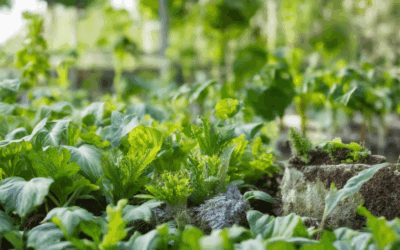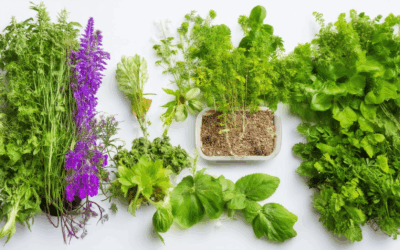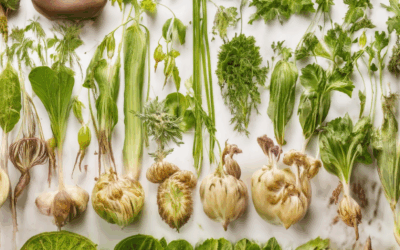As awareness of health and environmental concerns grows, more individuals are seeking alternatives to traditional pesticides for pest control. Conventional methods often pose risks to people, pets, and the planet, leading many to explore effective, natural solutions that protect without harmful chemicals. Whether you’re a homeowner, gardener, or business owner, finding safe and sustainable ways to manage pests is becoming increasingly popular. This article delves into proven natural pest control methods, highlighting non-toxic approaches that work just as well as chemicals, if not better. From natural sprays and traps to eco-friendly practices, discover a variety of options to keep your space pest-free while safeguarding your family, pets, and surroundings. Explore the benefits of non-chemical solutions, learn how to implement them effectively, and make an informed choice for a healthier, more sustainable lifestyle.
Key Takeaways
- Adopt non-toxic and organic pest control methods to protect your garden safely.
- Use ladybugs, praying mantises, and dragonflies as natural predators for pest control.
- Deploy physical barriers like mesh nets and sticky traps to keep pests out.
- Incorporate companion planting with marigolds and rotate crops to deter pests.
- Create DIY sprays using neem oil, garlic-hot pepper mix, and vinegar-water solutions.
- Opt for integrated pest management (IPM) for a comprehensive, eco-friendly approach.
- Employ natural chemical solutions such as essential oils, neem oil, and diatomaceous earth.
- Attract beneficial insects and use traps to effectively manage pest populations.
- Enhance your strategy by combining multiple methods for optimal results.
- Regularly monitor and maintain your space to prevent future infestations.
- Always follow instructions carefully when using natural solutions for safety and efficacy.
Alternatives to Using Pesticides
There are several effective ways to manage pests without relying on chemical pesticides:
- Natural Predators
- Encourage natural predators like ladybugs, birds, and predatory insects to control pest populations.
- Use biological control methods to introduce species that naturally prey on pests.
-
Companion Planting
- Grow plants that repel pests, such as garlic, onions, marigolds, and basil.
- Create a diverse garden ecosystem to disrupt pest habitats.
-
Traps and Barriers
- Deploy traps, such as yellow sticky traps, to capture common pests like flies.
- Use physical barriers like netting or fences to protect crops.
-
Intermittent Spraying
- Apply pesticides on a rotational basis, breaking the pest life cycle between treatments.
- Monitor pest populations to determine the need for spraying.
-
Soil Health Management
- Improve soil health through composting and organic amendments to strengthen plant resistance.
- Practice crop rotation to avoid pest buildup and introduce beneficial microorganisms.
-
Habitat Modification
- Provide shelter for beneficial insects by creating habitats with dense vegetation and dead wood.
- Manipulate environments to favor predator species over pests.
-
Cultural Practices
- Grow resistant varieties of plants to minimize pest damage.
- Maintain healthy plant spacing and hygiene to reduce pest attraction.
-
Monitoring and Early Intervention
- Regularly inspect plants to detect pests early and address issues promptly.
- Use pheromones or other monitoring tools to track pest activity.
By combining these methods, you can effectively manage pests while reducing reliance on chemical pesticides, promoting environmental sustainability, and enhancing garden biodiversity.
How Do Organic Farmers Control Pests Without Pesticides?
Organic farmers employ a variety of innovative and effective strategies to manage pests without relying on synthetic pesticides. These methods not only preserve biodiversity but also enhance soil health and crop resilience. Below are some key approaches used by organic farmers:
- Crop Rotation and Mixed Farming :
By rotating crops within the same field or planting different species in adjacent areas, farmers disrupt pest life cycles. This method prevents pests from finding a continuous food source and reduces the need for chemical interventions. Additionally, planting companion crops like marigolds or garlic repels pests naturally. - Resistant Varieties :
Farmers often select plant varieties that are naturally resistant to common pests and diseases. Breeding programs and seed selection play a crucial role in developing these resilient crops, ensuring better yields and healthier plants. - Floating Row Covers :
These lightweight covers are placed over crops to protect them from pests and adverse weather conditions. They act as a physical barrier, preventing insects from accessing the plants while allowing sunlight and airflow. - Biological Control :
Organic farmers utilize natural predators and parasites to control pest populations. For example, ladybugs are introduced to eat aphids, while parasitic wasps target pest eggs. This approach is both eco-friendly and long-lasting. - Composting and Organic Amendments :
Regular composting enhances soil health, providing nutrients that strengthen plants’ natural defenses against pests. Rich, organic soils encourage beneficial microorganisms that break down waste and suppress harmful pathogens. - Trapping and Monitoring :
Simple traps like yellow sticky cards or pheromone traps are used to monitor pest populations. Early detection allows farmers to implement control measures before pests become a problem. - Physical Barriers :
Methods such as fencing or netting can protect crops from animals or invasive species. This combined with careful planting spacing minimizes the risk of pests spreading undetected. - Integrated Pest Management (IPM) :
IPM systems combine several strategies to manage pests sustainably. This holistic approach ensures that farmers adapt to changing pest pressures while maintaining soil health and biodiversity.
By adopting these methods, organic farmers maintain healthy ecosystems and produce high-quality crops without the environmental impact of synthetic pesticides. For further insights and tools, explore our Farming Resources section.
What is a Good Natural Pest Control?
Natural pest control offers an eco-friendly alternative to chemical solutions, effectively protecting plants and the environment. One of the most popular natural pesticides is derived from neem trees, known for their ability to repel and kill various pests. Neem extract can be applied directly to plants as a bioinsecticide, targeting insects like moths, weevils, and beetles.
Another effective option is diatomaceous earth, a powder made from fossilized algae that acts as a natural pesticide and fungicide. It works by physically abrading the insects, leading to dehydration and death. Garlic spray, made from crushed garlic, is another natural remedy that repels pests and strengthens plant immunity.
Composting also plays a role in natural pest control by creating a habitat that discourages pests. Regularly adding compost to your garden attracts beneficial organisms like earthworms, which improve soil health and reduce pest populations. Companion planting, pairing plants with others that deter pests, is another sustainable method.
For more detailed guidance on implementing these methods, visit our natural pest control guide . Additionally, explore other natural solutions on GardenWeb and The Spruce .
By combining these techniques, you can maintain a healthy, pest-free garden while preserving biodiversity and environmental balance.
Non-Chemical Pest Control Methods
Pest control is essential for protecting plants and gardens from unwanted insects and animals. While chemical methods are often effective, they can pose health risks and harm the environment. Here are some non-chemical pest control methods that are safe, eco-friendly, and highly effective:
Biological Control Methods
Using natural predators or parasites to control pests is a sustainable alternative. For example:
- Ladybugs are natural predators of aphids and scale insects.
- Praying mantises eat many common garden pests like caterpillars.
- Dragonflies control mosquito populations by eating their larvae.
Physical Barriers
Physical barriers can effectively prevent pests from entering your garden or home. Some popular methods include:
- Using fine mesh nets or screens to block pests.
- Setting up bird feeders away from crops to deter birds from eating seeds.
- Applying sticky traps or glue boards to catch insects indoors.
Cultural Practices
Changing how you grow plants can discourage pests. These practices can help:
- Planting companion plants like marigolds, which repel pests.
- Rotating crops to avoid giving pests a continuous food source.
- Keeping garden areas tidy to reduce hiding spots for pests.
DIY Natural Sprays and Solutions
Make your own pest control solutions using natural ingredients:
- Neem oil spray is effective against many insect pests.
- Garlic and hot pepper spray can repel aphids and mites.
- Watering plants with a mixture of vinegar and water can kill soil-borne pests.
Choosing the Right Method
Selecting the best non-chemical method depends on the type of pest and your specific situation. For example:
- Bird control may require specific tools like bird scarecrows or netting.
- Insect control can be addressed with traps, biological methods, or natural sprays.
- Fungal diseases in plants can be treated with copper-based fungicides or compost.
Additional Tips
To maximize the effectiveness of non-chemical methods:
- Monitor pest activity regularly to act quickly when needed.
- Combine multiple methods for better results, such as using traps alongside natural predators.
- Always follow product instructions carefully when using natural solutions.
By adopting these non-chemical pest control methods, you can protect your garden while maintaining environmental sustainability. Explore more tips and guides on sustainable gardening practices at Old Seed .
Best Pest Control Method
The best pest control method depends on the type of pest, the severity of the infestation, and the environment where the pests are found. Here’s a comprehensive guide to effective pest control strategies:
1. Integrated Pest Management (IPM)
A holistic approach combining multiple methods for long-term effectiveness: – Monitor pest populations using traps or sensors. – Apply chemical pesticides as a last resort. – Use biological controls like ladybugs for insect pests. – Implement environmental modifications to eliminate pest habitats. – Practice crop rotation and companion planting to deter pests.
2. Chemical Pest Control
Effective for targeted pest issues: – Use pesticides labeled for specific pests (e.g., roach killer for cockroaches). – Apply baits or poison for rodents. – Follow dosage instructions carefully to avoid harming non-target species. – Choose eco-friendly alternatives like organic pesticides when possible.
3. Biological Pest Control
Safe for humans and the environment: – Introduce natural predators like parasitic wasps or predatory insects. – Use microbial pesticides derived from bacteria or fungi. – Plant flowers that attract beneficial insects to reduce pest populations.
4. Environmental Modifications
Prevent pests by altering their habitat: – Seal entry points around homes and buildings. – Keep yards tidy and free of debris. – Install screens on windows to prevent insect entry. – Use solar-powered lights to deter nighttime pests.
5. Mechanical Pest Control
Physical methods to disrupt pests: – Use traps for mice, rats, and birds. – Block access points with metal mesh or caulk. – Shake out bedding or furniture to remove pests. – Utilize vacuums or steam cleaning for carpet pests.
6. Regular Monitoring and Maintenance
Prevent future infestations through routine checks: – Inspect properties weekly for signs of pests. – Maintain clean living spaces to reduce attraction. – Schedule professional inspections annually for severe cases.
By combining these methods, you can effectively manage pests while minimizing harm to people, pets, and the environment. For more information on sustainable gardening techniques and eco-friendly solutions, visit our Sustainable Gardening Guide .
What is Natural Chemical Pest Control?
Natural chemical pest control refers to the use of naturally derived substances or methods to manage pests without relying on synthetic chemicals. This approach focuses on harmony with nature, often utilizing plant-based extracts, biological agents, or physical barriers to maintain balance in ecosystems. Below are some common methods of natural chemical pest control:
- Essential Oils : Extracts from plants like peppermint, eucalyptus, and rosemary are known for their pesticidal properties. These oils can be diluted and applied directly to plants or used in traps to repel pests.
- Neem Oil : Derived from the neem tree, neem oil has been traditionally used in India for centuries as a natural pesticide. It works by disrupting the nervous systems of insects and is safe for use on plants, animals, and humans.
- Pyrethrins : These are natural pesticides derived from chrysanthemum flowers. Pyrethrins are effective against various pests and are considered safer than many synthetic alternatives.
- Diatomaceous Earth : A fine powder made from fossilized remains of algae, diatomaceous earth acts as a physical barrier and suffocates pests. It’s safe for use around humans and pets.
- Biological Controls : Introducing natural predators or parasites, such as ladybugs or parasitic wasps, can help reduce pest populations organically. This method is particularly effective in outdoor settings like gardens.
- Traps and Barriers : Physical traps, such as sticky traps or pheromone traps, can effectively capture pests without harming them. Barriers like copper tape or reflective surfaces can deter pests from entering sensitive areas.
- Companion Planting : Planting certain crops, such as marigolds or nasturtiums, can repel pests naturally. This method works by attracting pests away from your main crops or disrupting their habitats.
- Integrated Pest Management (IPM) : This holistic approach combines natural pest control methods with monitoring and maintenance to ensure long-term pest management. By understanding local pest cycles and applying targeted solutions, IPM reduces reliance on chemicals and promotes sustainable practices.
By adopting these natural chemical pest control methods, homeowners and farmers can protect their plants and environments while minimizing harm to non-target species.








0 Comments